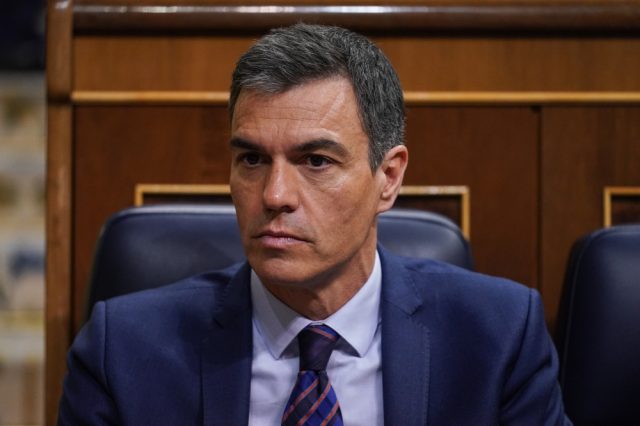
After Germany, France and Italy, Spain is undoubtedly the most important Member State within the European Union; not only in terms of GDP but also in terms of population and, let’s put it this way, international influence and positioning.
On the one hand, its location on the southern border of Europe, a few kilometres from North Africa, bordering even Morocco – with the Spanish cities of Ceuta and Melilla -; and on the other hand, and no less important, because of its historical, cultural, political and economic relations with all of America, but especially with South and Central America.
This is why, for the European conservative movement, monitoring what is happening in Spain should be a priority, as the transatlantic axis or connection should not only be the EU-United States relationship, but also the EU-Ibero-America relationship. For economic, cultural, political and strategic reasons.
The socialist-communist coalition government led by Pedro Sánchez in Spain, in permanent institutional crisis, dependent on separatist parties, and with obvious connections through the Sao Paulo Forum and the Puebla Group, with the so-called ‘narco-dictatorships’ of Cuba and Venezuela and the radical left-wing governments of Brazil and Chile, to give just a few examples, should be a prime motive for all European foreign ministries. If this has not been the case, it is because of the leftist tone of the Von der Leyen Commission’s policies, submissive to European liberals, greens and socialists, and because Sánchez has been one of the main defenders and promoters of the climate fanaticism that has permeated the European Green Pact.
The last week has seen the latest of the scandals in Spain. Surely tomorrow there may be another one. After President Sánchez’s grotesque announcement that he was retiring to think for a few days in view of the serious accusations of corruption against his government and his wife, only to make a public statement threatening judges, journalists and the political opposition with fierce persecution, there has been a diplomatic crisis of the first order.
One of his ministers, Óscar Puente, and a man he trusts, publicly accused Javier Milei, president of the Argentine Republic, of drug use. The Argentine government’s response has been relentless, and much celebrated in Spain, hitting back blow for blow; hitting back at the Sánchez government’s lie, a public communication where it portrays the political misery of the coalition government: territorial division, claims of amnesty for pro-coup politicians, economic corruption.
European governments would do well to be concerned about the dangerous drift of the socialist and communist government in Spain. The consequences of its policies, in international affairs or the non-existent immigration control, can be felt throughout Europe.
It is unacceptable that a European government should seek to hide its problems from public opinion by unleashing a diplomatic crisis with a nation like Argentina, which is also making extraordinary efforts to emerge from the permanent crisis – economic and institutional – in which Kirchnerism has plunged it for years. Spain does not deserve a government that leads it to ridicule; just because Milei is a friend, ally and partner of Santiago Abascal, the leader of VOX, a party that is part of the ECR Party; and which has already announced its presence in Madrid on 18 and 19 May at the great conservative event that will mark the end of this legislature.



 Subscribe
Subscribe